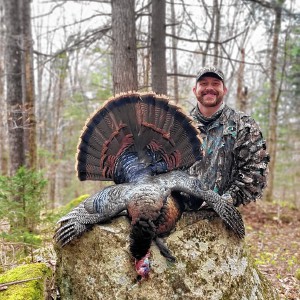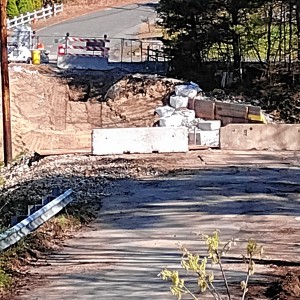Stakeholders submit ranging comments on FirstLight’s Recreation Settlement Agreement
| Published: 07-12-2023 4:14 PM |
TURNERS FALLS — Three local stakeholder organizations have submitted comments on FirstLight Hydro Generating Co.’s proposed Recreation Settlement Agreement, sharing concerns ranging from insufficient advisory group representation to inadequate accessibility upgrades for people with disabilities.
The comment period, which concluded Monday, began after FirstLight filed its proposed Recreation Settlement Agreement with the Federal Energy Regulatory Commission on June 12. The proposal is highlighted by new installations, including public parks with viewing platforms and picnic areas, campsites with paddle access, bike trails on Northfield Mountain and river access points. It also pledges to place conservation restrictions on more than 761 acres of land it owns along the Connecticut River, as well as conduct a comprehensive review of recreation projects every 10 years to evaluate ongoing use and demand.
The agreement, part of a comprehensive settlement effort related to FirstLight’s 50-year relicensing negotiations, states it has been “a decade-long process ... to reach consensus on measures to enhance public recreation ... through construction of new recreation sites, upgrades to existing sites, placement of conservation restrictions on lands abutting the Connecticut River and coordinated programmatic efforts.”
Among those who submitted comments were the Nolumbeka Project Indigenous history and cultural preservation group, the Northampton-based Unpaved Trails for All recreation accessibility advocacy group and the Connecticut River Conservancy environmental advocacy group. All three parties submitted their comments within the past week, voicing concerns relative to their respective missions.
The Nolumbeka Project was the first of the three stakeholders to submit comments, doing so last Thursday. The nonprofit voiced “cultural preservation concerns relating to the Fish and Flows Settlement Agreement,” filed on March 31, “that have also revealed themselves with this new Recreation Settlement Agreement.”
Specifically, the organization highlights “the absence of any tribal entities or other underserved populations as participants and signatories within this agreement, as well as their absence from the yet-to-be-formed Recreation Advisory Group.” The Nolumbeka Project also asserted that the agreement had been “altered to the point of being non-recognizable” when compared to their original conversations or the Memorandum of Agreement in Principle.
“We understand that there will be significant ground-disturbing activities that are going to take place for these recreational upgrades and improvements to become a reality,” wrote Joe Graveline, tribal coalition senior advisor. “Those kinds of ground-disturbing activities can put cultural resources at risk anywhere they might take place on the Connecticut River. Often, the results are a form of systemic cultural erasure. If our history disappears, we disappear.”
The Nolumbeka Project’s submission also includes refutal of findings that there are no “traditional cultural properties” in the affected area, concerns regarding river flow rate and more. The submission can be read at rb.gy/efyh8.
Article continues after...
Yesterday's Most Read Articles
 Sportsman’s Corner: The quest for the Super Slam
Sportsman’s Corner: The quest for the Super Slam
 Cryptozoology exhibits featured at Education Earth Museum
Cryptozoology exhibits featured at Education Earth Museum
 Athol Police Logs: April 12 to April 19, 2024
Athol Police Logs: April 12 to April 19, 2024
 Athol Royalston Middle School Honor Roll Term 3
Athol Royalston Middle School Honor Roll Term 3
 Work on Pinedale Avenue Bridge connecting Athol and Orange to resume
Work on Pinedale Avenue Bridge connecting Athol and Orange to resume
 Longtime public servant Richard Sheridan dies at 78
Longtime public servant Richard Sheridan dies at 78
Unpaved Trails for All submitted its comments on Friday. The organization asserts that the agreement lacks “features that are essential for individuals living with disabling conditions to utilize the outdoor recreation areas managed by FirstLight in an equitable and meaningful manner.”
“A stated goal of the [Recreation Management Plan] is to ensure that all members of the community, including disabled and underserved populations, can equally benefit from the recreational opportunities,” wrote Meg Moynahan Bandarra, founder of Unpaved Trails for All. “The plan, in its current form, falls short of this goal.”
Moynahan Bandarra makes 10 proposals that her organization would like to see added to the agreement, including representation from “the disabilities community” on the prospective Recreation Advisory Group, a commitment to conducting an outdoor accessibility assessment, improved trail access and more. The full submission can be viewed at rb.gy/ihivd.
The Connecticut River Conservancy submitted its comments on Monday. The comments address portions of the proposed agreement by their section labels, beginning with Section 2.2 concerning the Recreation Settlement Agreement’s relationship to the Flows and Fish Passage Agreement. Here, River Steward Kelsey Wentling denounces FirstLight’s condition that those who sign onto the recreation agreement abstain from opposing the flows and fish passage accord.
“It is entirely inappropriate to add this requirement to the offer, which was not included in the Recreation Agreement in Principle, and seems to be a last-ditch effort to force the appearance of a more comprehensive settlement than was actually achieved,” Wentling expressed.
The Connecticut River Conservancy’s letter later voices opposition toward a 50-year license term; denounces FirstLight’s exclusion of people with disabilities, underserved populations, environmental justice advocates and Indigenous communities on the prospective Recreation Advisory Group; and criticizes FirstLight for not making mention of invasive species. The group’s full submission can be viewed at rb.gy/lkk6r.
Communications Manager Claire Belanger said Tuesday that FirstLight would address all stakeholder comments via a response filed with FERC by their July 25 deadline.
“That said, we remain committed to continuing negotiations with willing stakeholders on remaining issues in the hopes of reaching a comprehensive settlement agreement,” she added, “as has always been our goal.”
Reach Julian Mendoza at 413-930-4231 or jmendoza@recorder.com.

 UMass student group declares no confidence in chancellor
UMass student group declares no confidence in chancellor State Senate budget funds free community college for all
State Senate budget funds free community college for all